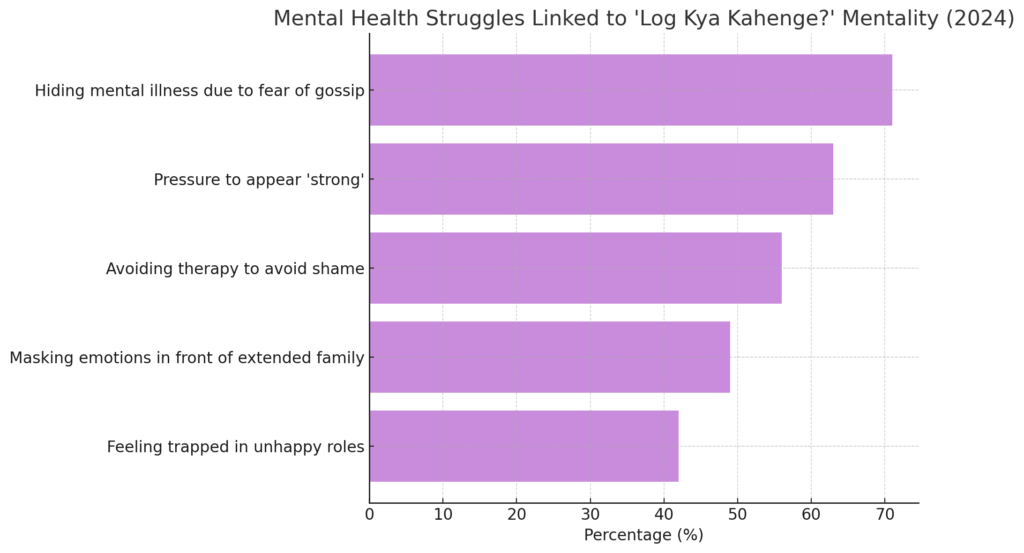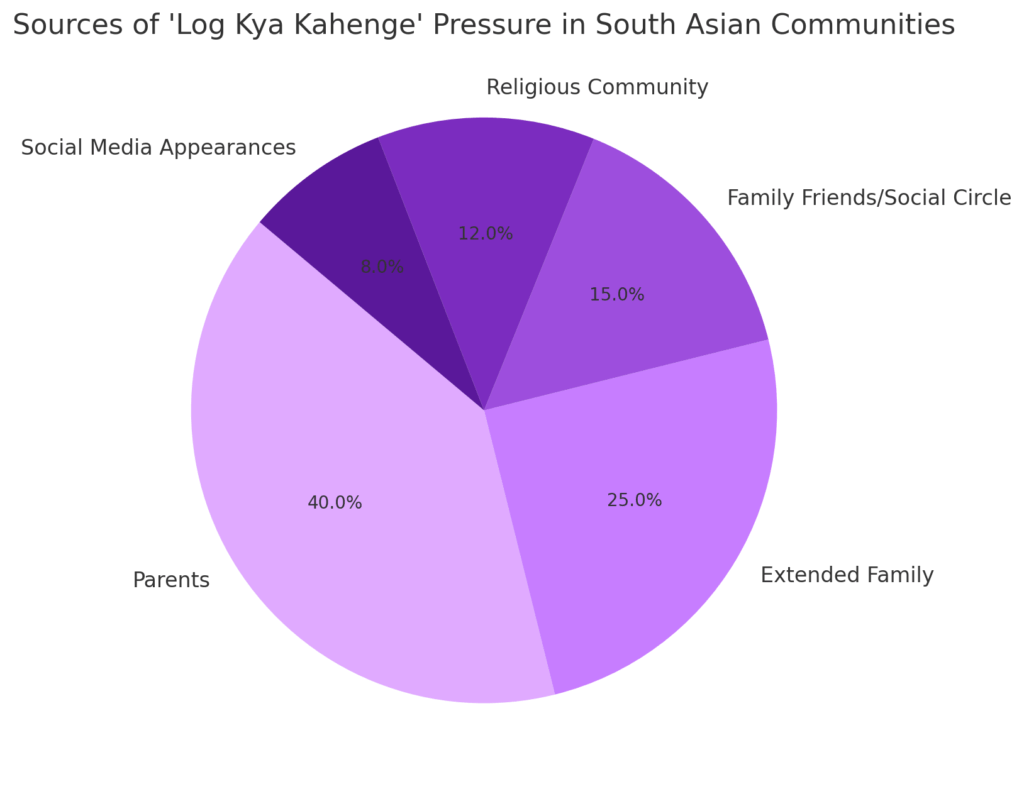
South Asian Mental Health • Cultural Shame • Social Pressure • Individual Healing • Generational Expectations
🧠 “They’d rather I suffer silently than bring shame to the family name.”
The phrase “Log kya kahenge?” — What will people say? — is more than a rhetorical question in South Asian households. It’s a weapon of silence, a suppressor of mental health conversations, and a mask that forces many to wear a brave face while they break inside.
📊 Bar Chart: Impact of “Log Kya Kahenge?” on Mental Health

Top 5 Mental Health Struggles Linked to Social Image Pressure (2024 Survey)
- 71%: Hiding mental illness due to fear of gossip
- 63%: Pressure to appear “strong” at all times
- 56%: Avoiding therapy to avoid shame
- 49%: Masking emotions in front of extended family
- 42%: Feeling trapped in unhappy roles (marriage, career)
🔍 What Does It Mean to Prioritize Social Image?
In many South Asian cultures, izzat (honor) is communal — one person’s behavior reflects on the entire family. This leads to:
- Avoiding therapy to maintain a “perfect” image
- Suppressing mental struggles to not “embarrass” parents
- Choosing careers, partners, or silence based on expectations
💬 Real Voices
Aamna, 27 (UK):
“I wanted to go to therapy. My mom said, ‘What will our relatives think?’ I chose silence for years.”
Rhea, 33 (US):
“We celebrated my degree but never acknowledged my burnout. Mental health wasn’t success — it was weakness.”
🥧 Pie Chart: Who Influences the “Log Kya Kahenge” Mentality Most

- 40%: Parents
- 25%: Extended family
- 15%: Family friends/social circle
- 12%: Religious community
- 8%: Social media appearances
🚨 Emotional Toll
Social image pressure is directly linked to:
- Chronic anxiety
- High-functioning depression
- Delayed diagnosis
- Low self-worth
A 2023 study from MannMukti found 64% of South Asian women delayed seeking help because of social image concerns.
🔁 Breaking the Pattern
- Reframe vulnerability as strength
- Normalize open conversations at home
- Decenter judgment from relatives and strangers
- Share your healing publicly to model change for others
🌐 Resources
- MannMukti – Stories of mental health without shame
- Brown Girl Therapy – Tools for identity-safe wellness
- Therapize India – Directories for culturally informed therapy
- SOCH Mental Health (Canada) – Workshops on stigma and shame
No Responses